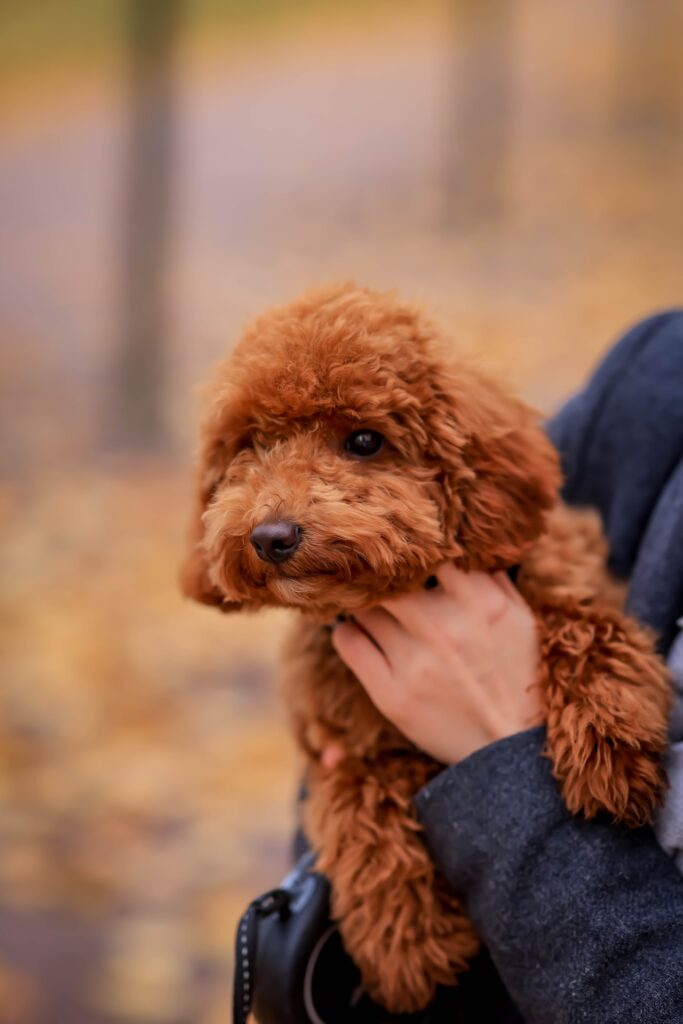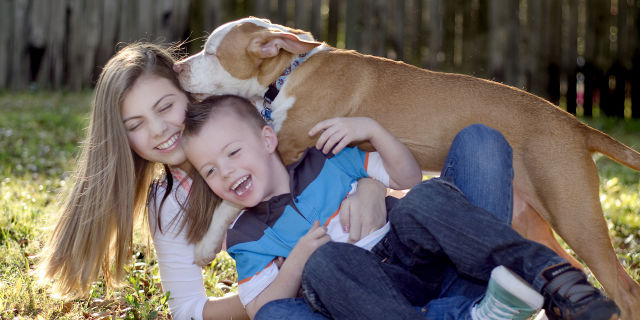The best home-breed dog depends on various factors such as lifestyle, living space, personality, and individual preferences It’s important to consider each breed’s specific characteristics and requirements. In this blog we will get to know the Best 5 Dog Breeds for Home, keep reading
The best home-breed dog depends on various factors such as lifestyle, living space, personality, and individual preferences. Some popular breeds for home companionship include Labrador Retriever, Golden Retrievers, poodle, Bulldog, and Siberian Husky. It’s important to consider each breed’s specific characteristics and requirements and choose one that fits your lifestyle and living situation. Before bringing a dog into your home, it is recommended to research and consult with a veterinarian or dog behaviorist.
1. Labrador Retriever

Labrador Retriever dogs are one of the most popular dog breeds in the world and for good reason. They are known for their friendly and outgoing personalities, intelligence, and loyalty. In this article, we’ll take a look at some of the basic characteristics of the Labrador Retriever, as well as the different variants of the breed. We’ll also explore some of the advantages and disadvantages of owning a Labrador Retriever as a pet.
Basic Characteristics
The Labrador Retriever is a medium to the large-sized dog breed that typically weighs between 55-80 pounds and stands about 21-24 inches tall at the shoulder. They have a short, dense coat that comes in a variety of colors including black, chocolate, and yellow. Labrador Retrievers are known for their athletic build, with strong legs and a muscular body that allows them to be excellent swimmers and retrievers.
Labrador Retriever dogs Variant
There are two main variants of the Labrador Retriever: the English Labrador Retriever and the American Labrador Retriever. The English variant is often referred to as the “show” Labrador Retriever and is known for its stockier build and shorter legs. The American variant, on the other hand, is more commonly used as a working or hunting dog and has a leaner build and long legs. While there are some physical differences between the two variants, both share the same friendly and outgoing temperament that has made them such a popular breed.
The advantages and pros to have Labrador Retrievers at home.
Great with Kids
Labrador Retrievers are known for their gentle and patient nature, which makes them excellent companions for families with children. Do you know what other dogs breed best for kids?
Easy to Train
Labrador Retrievers are highly intelligent and eager to please, which makes them easy to train. They respond well to positive reinforcement training methods and can be trained to do a variety of tasks.
Active Lifestyle
Labrador Retrievers are naturally active and require daily exercise, which can be a great motivator for their owners to lead a more active lifestyle as well.
Loyalty
Labrador Retrievers are known for their loyalty to their owners and will often go to great lengths to protect and care for them.
Low Maintenance
Labrador Retrievers have short, dense coats that require minimal grooming, making them a low-maintenance pet option.
The disadvantages and cons of having a Labrador Retrievers dog at home
High Energy
While Labrador Retrievers’ active nature can be a benefit, it can also be a disadvantage for those who aren’t able to provide them with enough exercise and stimulation.
Can be Destructive
Labrador Retrievers are known to be chewers and diggers, which can be a problem if they are not given enough toys and activities to keep them entertained.
Health Issues
Like all dog breeds, Labrador Retrievers are prone to certain health issues, such as hip dysplasia and obesity. It’s important to keep up with regular vet check-ups and take preventative measures to ensure your Labrador Retriever stays healthy.
Conclusion
Overall, Labrador Retrievers are an excellent choice for those looking for a friendly, loyal, and intelligent pet. While there are some potential drawbacks, the advantages of owning a Labrador Retriever far outweigh the disadvantages for most people. With proper training, exercise, and care, a Labrador Retriever can make a wonderful addition to any household.
Learn how to get a dog for adoption
2. Golden Retrievers

Golden Retrievers are one of the most popular dog breeds in the world, known for their friendly personalities and beautiful, golden coat. In this article, we will look at some of the basic characteristics of the Golden Retriever, as well as the different variants of the breed. We’ll also explore some of the advantages and disadvantages of owning a Golden Retriever as a pet.
Golden Retrievers Basic Characteristics
The Golden Retriever is a medium to the large-sized dog breed that typically weighs between 55-75 pounds and stands about 21-24 inches tall at the shoulder. They have a thick, lustrous coat that is either a pale golden color or a darker shade of gold. Golden Retrievers are known for their friendly and outgoing personalities, as well as their intelligence and eagerness to please.
Golden Retrievers Variant
There are two main variants of the Golden Retriever: the American Golden Retriever and the British Golden Retriever. The American variant is typically lankier and less heavily built, with a darker coat, while the British variant has a more muscular build and a lighter coat. Both variants are known for their gentle and loving nature.
The advantages and pros of having a Golden Retrievers dog at home
Friendly
Golden Retrievers are known for their gentle and friendly nature, making them great companions for families with children.
Easy to Train
Golden Retrievers are highly intelligent and eager to please, making them easy to train. They respond well to positive reinforcement training methods and can be trained to do a variety of tasks.
Great for an Active Lifestyle
Golden Retrievers love exercise and outdoor activities, which makes them a great motivator for their owners to lead a more active lifestyle.
Good with Other Pets
Golden Retrievers are generally good with other pets, including cats and other dogs.
Loyal
Golden Retrievers are known for their loyalty to their owners and will go to great lengths to protect and care for them.
The disadvantages and cons of having a Golden Retrievers dog at home
High Energy
While Golden Retrievers’ active nature can be a benefit, it can also be a disadvantage for those who aren’t able to provide them with enough exercise and stimulation.
Shedding
Golden Retrievers shed a lot, especially during seasonal changes. They require regular grooming to keep their coats healthy and shiny.
Health Issues
Like all dog breeds, Golden Retrievers are prone to certain health issues, such as hip dysplasia, cancer, and allergies. It’s important to keep up with regular vet check-ups and take preventative measures to ensure your Golden Retriever stays healthy. Top 5 common health-related questions about a dog, every dog owner needs to know.
Conclusion
Golden Retrievers are an excellent choice for those looking for a friendly, loyal, and intelligent pet. While there are some potential drawbacks, the advantages of owning a Golden Retriever far outweigh the disadvantages for most people. With proper training, exercise, and care, a Golden Retriever can make a wonderful addition to any household.
3. Poodle

Poodles are a popular dog breed known for their intelligence, elegance, and hypoallergenic coat. In this article, we will discuss the basic characteristics of Poodles, the different variants of the breed, as well as the advantages and disadvantages of owning a Poodle as a pet.
Basic Characteristics of Poodles
Poodles are medium-sized dog breeds that come in three sizes: toy, miniature, and standard. They have a curly, dense coat that comes in a variety of colors such as black, white, brown, and apricot. Poodles are highly intelligent and trainable dogs, making them great companions for families with children or elderly people.
Poodles Variant
There are four main variants of Poodles: the Standard Poodle, Miniature Poodle, Toy Poodle, and Teacup Poodles. The Standard Poodle is the largest, while the Teacup Poodle is the smallest. The Teacup Poodle is not a recognized breed by the American Kennel Club, as it is often bred to be smaller than the Toy Poodle. All Poodles are considered hypoallergenic, meaning they shed very little, making them ideal for people with allergies.
The advantages and pros of having a Poodles dog at home
Hypoallergenic
Poodles are a great choice for people with allergies, as they produce less dander than other dog breeds.
Intelligent
Poodles are highly intelligent and trainable dogs, which makes them great companions for families with children or elderly people.
Low Maintenance
Poodles have a curly, dense coat that requires minimal shedding and grooming.
Active
Poodles have a lot of energy and love to play, which makes them great pets for active individuals and families.
Good with Other Pets
Poodles are generally good with other pets, including cats and other dogs, making them a great addition to a multi-pet household.
The disadvantages and cons of having a Poodles dog at home.
Separation Anxiety
Poodles are highly social dogs and can suffer from separation anxiety if left alone for long periods of time.
Health Issues
Like all dog breeds, Poodles are prone to certain health issues, such as hip dysplasia, eye problems, and skin allergies. It’s important to keep up with regular vet check-ups and take preventative measures to ensure your Poodle stays healthy.
High Maintenance
While Poodles have a low-shedding coat, their curly hair requires regular grooming and trimming to prevent matting and tangling.
Conclusion
Poodles are a great choice for families or individuals looking for an intelligent, hypoallergenic, and active pet. While they may have some potential drawbacks, the advantages of owning a Poodle far outweigh the disadvantages for most people. With proper training, exercise, and grooming, a Poodle can make a wonderful addition to any household.
Learn more about Lyme Disease in Dogs
4. Bulldog

Bulldogs are a lovable and recognizable breed known for their wrinkly faces, stocky build, and friendly personality. In this article, we will discuss the basic characteristics of Bulldogs, the different variants of the breed, as well as the advantages and disadvantages of owning a Bulldog as a pet.
Basic Characteristics
Bulldogs are medium-sized dog breeds that typically weight between 40-50 pounds. They have a short, smooth coat that comes in a variety of colors such as white, fawn, and brindle. Bulldogs have a friendly and gentle temperament, making them great companions for families with children or elderly people.
Bulldogs Variant
There are several different types of Bulldogs, including the English Bulldog, French Bulldog, and American Bulldog. The English Bulldog is the most common type of Bulldog, while the French Bulldog is a smaller and more compact version. The American Bulldog is a larger and more muscular breed that is often used as a working dog.
The advantages and pros of having a Bulldog at home
Friendly dog breed
Bulldogs are known for their friendly and gentle personalities, making them great companions for families with children or elderly people.
Low Maintenance dog
Bulldogs have short, smooth coat that requires minimal shedding and grooming.
Loyal
Bulldogs are known for their loyalty to their owners and will often follow them around the house or lay at their feet.
Good Watch Dogs
Bulldogs have a deep bark and will alert their owners to any potential intruders.
Easy to Train
Bulldogs are intelligent dogs and are relatively easy to train, making them a great choice for first-time dog owners.
The disadvantages and cons of having a Bulldog at home
Health Issues in Bulldog
Bulldogs are prone to certain health issues such as breathing problems, hip dysplasia, and skin allergies. It’s important to keep up with regular vet check-ups and take preventative measures to ensure your Bulldog stays healthy.
Exercise Requirements
Bulldogs are not particularly active dogs and require regular exercise to maintain a healthy weight and prevent obesity.
Temperament
While Bulldogs are generally friendly and gentle, they can sometimes be stubborn or protective, which can lead to aggression if not properly trained and socialized.
Conclusion
Bulldogs are a great choice for families or individuals looking for a friendly and low-maintenance pet. While they may have some potential drawbacks, the advantages of owning a Bulldog far outweigh the disadvantages for most people. With proper training, exercise, and grooming, a Bulldog can make a wonderful addition to any household.
Learn about Dog Cancer
5. Siberian Husky

Siberian Huskies are a stunning and athletic breed that has become increasingly popular as a pet. In this article, we will discuss the basic characteristics of Siberian Huskies, the different variants of the breed, as well as the advantages and disadvantages of owning a Siberian Husky as a pet.
Basic Characteristics
Siberian Huskies are a medium-sized dog breed that typically weighs between 35-60 pounds. They have a thick, double coat that comes in a variety of colors such as black, white, and grey. Siberian Huskies are known for their friendly and energetic temperament, making them great companions for active individuals or families with children.
Siberian Huskies Variant
There are several different types of Siberian Huskies, including the Alaskan Husky and the Mackenzie River Husky. The Alaskan Husky is a crossbreed that is often used for sled racing and working, while the Mackenzie River Husky is a larger and more muscular breed that is known for its strength and endurance.
The advantages and pros of having a Siberian Husky at home
Friendly dog breed
Siberian Huskies are known for their friendly and outgoing personalities, making them great companions for families with children or other pets.
Athletic dog
Siberian Huskies are a highly athletic breed and require regular exercise and activity to maintain their health and well-being.
Low Maintenance
Siberian Huskies have thick coat that requires minimal grooming and shedding, making them relatively low-maintenance pets.
Intelligent dog breed
Siberian Huskies are intelligent dogs and are relatively easy to train, making them a great choice for active and experienced dog owners.
Loyalty
Siberian Huskies are known for their loyalty to their owners and will often form strong bonds with their families.
The disadvantages and cons of having a Siberian Husky at home
High Energetic dog breed
Siberian Huskies are a high-energy breed and require regular exercise and activity to prevent destructive behavior or boredom.
Separation Anxiety
Siberian Huskies can suffer from separation anxiety when left alone for extended periods of time, which can lead to destructive behavior or excessive barking.
Health Issues
Siberian Huskies are prone to certain health issues such as hip dysplasia, eye problems, and skin allergies. It’s important to keep up with regular vet check-ups and take preventative measures to ensure your Siberian Husky stays healthy.
Conclusion
Siberian Huskies are a great choice for active and experienced dog owners who are looking for a friendly and athletic pet. While they may have some potential drawbacks, the advantages of owning a Siberian Husky far outweigh the disadvantages for most people. With proper training, exercise, and grooming, a Siberian Husky can make a wonderful addition to any household.
Do you have a Puppy at home? learn about Best Puppy Food
Your every comment is valuable to all of us. Share your opinions and experiences about your pets. Thanks for being here.

[…] Poodles dog […]